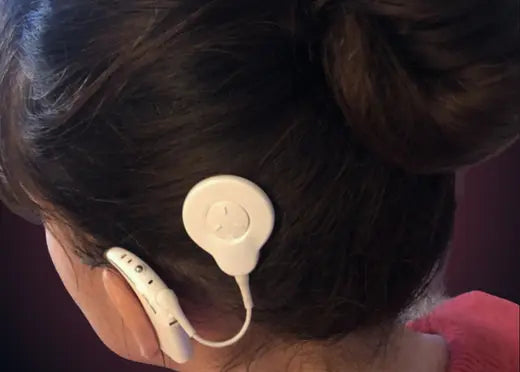Hard of hearing or deaf: two terms often used, but with very different realities. Understanding these distinctions allows us to offer the best solutions to the hearing-impaired to improve their daily lives and independence.
Definitions and classifications of hearing disorders
Hearing impairments can be mild, moderate, severe, or profound. Clearly identifying whether a person is deaf or hard of hearing allows for the selection of the most appropriate hearing solution for each individual.
What exactly is a hearing impaired person?
A person with hearing loss is someone with partial hearing loss. This hearing difficulty varies in intensity, from mild to moderate or severe, but generally allows for understanding of amplified sounds.
What is a deaf person?
The term "deaf" refers to a person with very severe or profound hearing loss. Communication is often done through sign language or other visual modes, as auditory perception is greatly reduced or absent.
What are the main causes of hearing problems?
Hearing loss can be caused by natural aging, prolonged exposure to high sound levels, genetic diseases, infections, or physical trauma.
The daily impacts of the hearing impaired
Communication and social isolation
Hearing loss, even mild hearing loss, complicates daily interactions, often leading to frustration, social isolation, and difficulty participating in conversations.
Difficulties of the hearing impaired in healthcare facilities
In healthcare facilities such as nursing homes and hospitals, hearing impairments increase the risk of medical errors due to misunderstandings, making the use of adapted devices for the hearing impaired essential.
Social life and autonomy of hearing-impaired people
Hearing loss severely limits independence and affects quality of life by reducing active participation in social and professional activities, requiring appropriate care.
Solutions adapted to the hearing impaired
Hearing aids: for whom?
Hearing aids remain the standard of care for people with hearing loss who are able to manage complex technical adjustments and benefit from regular medical support.
Hearing aids: an accessible alternative
For people experiencing loss of independence or seeking a simple solution, hearing aids like Spokeo offer an excellent alternative. These intuitive devices immediately facilitate communication without requiring complex adjustments.
Accessories and complementary aids for the hearing impaired
Other accessories (TV headsets, telephone amplifiers) effectively complement hearing solutions, improving the daily listening comfort of the hearing impaired.













